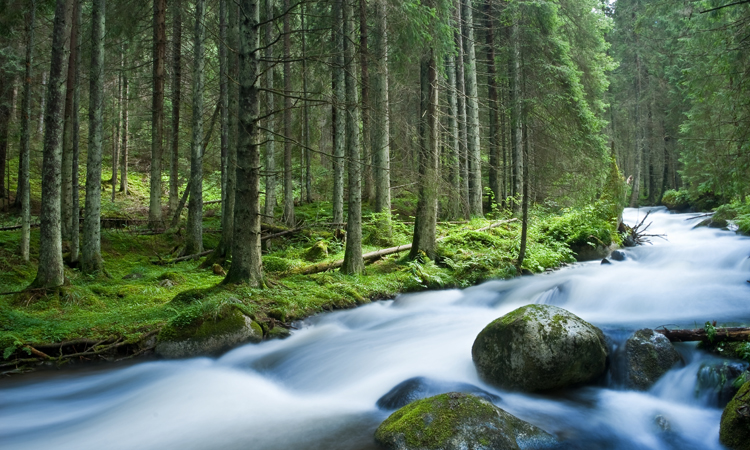
I live in Northern California, the land of rolling hills that are golden in the summer, and lushly green in the winter—at least, they used to be. Last February, while wearing flip-flops and shorts when I should have been hunkering down in flannel in drenching rain, I realized something had to change: my attitude of denial. I, like many people, had not wanted to accept that climate change has affected my beautiful home, and the availability of essential resources, such as water.
Rebecca Lawton, author, fluvial geologist, and Fulbright Scholar, who studied fluid dynamics, has been researching water from various angles—and writing about it—all her life. “Loving nature and water is in my blood,” she says. Her maternal grandfather was an Adirondack mountain and fishing guide, and her mother a naturalist and teacher trainer for Audubon.
Lawton is tired of those who only point fingers at the “big water users” and hopes that individuals will remember their crucial role in conservation, reminding us, “Human beings are made of water. What if we were as careful about the health of the molecule outside our bodies as we were when it’s inside our skins? I believe we would see a big change in our culture, and I think it would be for the good,” she says.
Inspired by scientists and naturalists like Lawton, and armed with a newfound sense of urgency, I put into place small water conservation efforts around my home and yard, and was surprised to discover an unexpected boost in my mood. Hand-watering my flowers and plants with greywater forces me to slow down and take time out from my work, something I sorely need. Turning off taps and learning to flush my toilet with shower water all led me to consider the fragile nature of living systems. And once I’m outside, I often realize how disconnected I’ve become from the sensations of wind in my hair and sun warming my skin. We need to think of humankind not as the center of all creation but part of the larger web of nature that needs our stewardship.
When I built my first real garden several years ago, I was surprised by how much I looked forward to working in it. Then I read that research published in Neuroscience reveals a bacteria found in soil, Mycobacterium vaccae, causes the brain to release serotonin, like a natural antidepressant.
Multiple other studies show that exposure to nature can boost our immune systems, lift depression, calm our stress hormones, and even speed the healing process after surgery. So powerful are the effects that the Japanese Ministry of Agriculture, Forestry and Fisheries came up with a term for it: Shinrin-yoku, or “forest bathing” and prescribes it for stress relief.
But we can’t have forests without water and nature conservation.
For Lawton, whose family placed a high value on nature, conservation of water, and the natural world, is intrinsic to her being. “My parents made sure my siblings and I had the experience of wildness and wilderness, and from there, river guiding was a logical pursuit for me. I fell for the alternately ferocious and nurturing world of wild rivers when I was a teenager and began [river raft] guiding. Once I had lived and worked and been part of the ecosystem that needs the water as much as we do, I could never again waste it.”
Reconnecting to nature has surprisingly important ties to human well-being. Elizabeth Nisbet and John Zelinksi, authors of a study called “Happiness and Feeling Connected: The Distinct Role of Nature Relatedness”, write: “Nature relatedness remained a significant predictor of most happiness even when controlling for a variety of other connections.”
Nature is, after all, our first and last “home” and it’s our job to take care of it. As Lawton, says, “Our gestures—and our attitudes and language—make our world. If we say “who the hell cares,” then who the hell will care?
She suggests we “Embrace a water-loving mindset,” and take steps to harvest rainwater, install a greywater system, and go further “by telling our representatives and public agencies you support and encourage radical conservation. The time to conserve was yesterday and yesteryear. Let’s make up time. Live with fierce determination to love the water inside and outside your bodies, and the rest will follow.”
After all, conservation is a win-win situation: you reap the benefits, and the natural world thrives.
To find out about Rose’s thoughts on how to live a happier life, click here



1 Comment
Rebecca Lawton
How great to read about the garden’s effect on your life, Jordan! Very inspiring. Thank you.